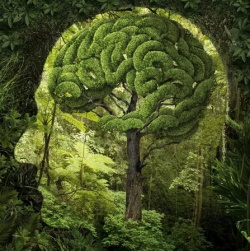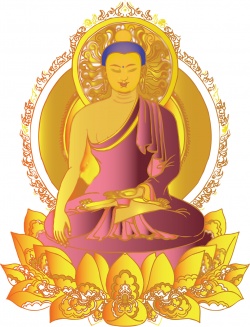A Critique of Buddhism by Benjamin Studebaker
Today I’d like to criticize an element of Buddhism that rubs me the wrong way. I wish to make the critique both because I think it is a good criticism and because I think that Buddhism is generally given a bit of a pass by Americans and Europeans–it is not subjected to the same level of scrutiny that the Abrahamic religions routinely face.
Before I proceed, I need to offer a bit of a disclaimer–when criticizing religions, particularly in the Buddhist case, it is important to recognize that many self-described believers nonetheless have beliefs that contradict one another. You can find Christian capitalists and you can find Christians who think that usury is a sin. Because of this, it is necessary to be very specific about which permutations of Buddhism I’m criticizing. The specific element within Buddhism that bothers me is the four noble truths. I interpret these truths to mean the following:
- Suffering exists.
- Suffering is caused by desire.
- It is possible to eliminate desire, and, correspondingly, to eliminate suffering.
- The cessation of desire (and thus suffering) is achieved via the eightfold path, which culminates in nirvana.
Nirvana is the state of enlightenment in which one is freed from desire (and thus suffering). One who has achieved nirvana no longer reincarnates. When one who has achieved nirvana dies, said individual ceases to be entirely.
Not all Buddhists will necessarily agree with the interpretation I have laid out above. My critique only applies insofar as one shares my view of Buddhism entails. Formulations of Buddhism that differ significantly from this one may be immune to this critique.
With all of that in mind, what’s wrong with Buddhism as I formulated it? Quite a bit. To start, let’s look at the second noble truth, the claim that suffering is caused by desire.
It is true that unsatisfied desires, whether positive or negative, are the source of suffering. In the negative case, if I desire not to be hungry, to feel pain, or to be cold, one could say that my desire is the source of my misery. If I could come to terms with the fact that I am hungry, in pain, or cold, such that I no longer desired the cessation of those feelings, I theoretically might no longer suffer. In the positive case, I might want sex, or money, or power, or stuff, and my inability to attain these things might cause me to suffer. If I didn’t want these things in the first place, I could not resent not having them.
However, there are two ways to deal with desire–one way is, as Buddhism suggests, to eliminate it. The other is to actually achieve what you desire, to get what you want. There are entire moral theories that suppose that desire satisfaction is the principle source of good. So though desire may be the source of suffering, it may also in turn be the principle source of goodness. How else can we be benevolent toward others other than by helping them to get the things they want or ought to want? The benevolent behavior Buddhists are encouraged to engage in via the eightfold path seems to require that they fulfill the desires of others. How can the path to enlightenment entail leading others away from enlightenment? It’s contradictory.
The next trouble I have is with the third noble truth (and, consequently, with the fourth), the belief that desire (and thus suffering) can be altogether eliminated. To eliminate desire altogether would eliminate not merely suffering, it would eliminate happiness, as happiness is the product of satisfying our desires. In order for it to be possible to eliminate desire, we would have to actively pursue an entirely neutral mental state. And how could we pursue such a mental state without, on some level, desiring that mental state itself?
Even more importantly, if we are not desiring anything, if we are in a perpetually neutral state, are we really alive in any meaningful sense? Does not life entail pursuits of some kind or another? The man without any goals or dreams is a man already in the grave. Yet that does indeed seem to be the goal of Buddhism–those who achieve nirvana cease to reincarnate and cease to be. So the goal of Buddhism does seem to be well and truly non-existence. This leads to a very disturbing contradiction. The point of life, according to Buddhism, is to achieve permanent death.
In which case, doesn’t Buddhism imply that we ought not to create life in the first place? If all beings that are alive are beset with desires and suffering until they achieve nirvana, and most beings never achieve nirvana, isn’t creating life an overwhelmingly harmful activity? Yet Buddhism does not explicitly oppose childbirth anywhere that I can see, and it certainly doesn’t advocate for the humane killing of other beings in order to eliminate the suffering that goes with life for most of them.
But perhaps, in order to achieve permanent death, we have to do behave benevolently toward others for some length of time. But what meaning does this benevolence have if all of these other beings are themselves best off permanently dead in a state of non-existence? How can we be good to someone whose life’s purpose is not to be happy but to achieve death?
There is a stench of nihilism about all of this. All human projects are the result of desire, so Buddhism negates all human projects. At the same time, Buddhism maintains that we should behave benevolently toward one another, but if benevolence consists of making others happy and happiness for others means achieving their projects and humans having projects is the source of human suffering, then being benevolent under Buddhism consists of preventing people from achieving their rightly considered life purpose, the achievement of permanent death. And how could we all simultaneously attempt to achieve permanent death when doing so involves sating one another’s desires that we have all mutually committed to eradicate? In the end, all of this must be resolved one way or the other–the contradiction is too strong.
Either Buddhism is a nihilist theory, in which life’s only purpose is its end, or Buddhism is a moral theory of how we should treat each other, in which case Buddhism’s methodology for eliminating suffering is not really about desire, but is really just about being nice to other people. In the latter case, either Buddhism is mistaken about what suffering is, or Buddhism is mistaken about whether or not it can be eliminated or ought to be eliminated.
In sum, it just doesn’t hold together. While desires lead to suffering, they also lead to happiness if we can manage to achieve them. The entire human project has, for thousands of years, been about improving the human condition by achieving human goals. Buddhism rejects the very idea that human beings ought to have projects or goals that they desire to achieve, and in so doing, Buddhism (as I’ve understood it) denies the human project. If that’s not nihilism, I don’t know what is.
Source
By Benjamin Studebaker
benjaminstudebaker.com


